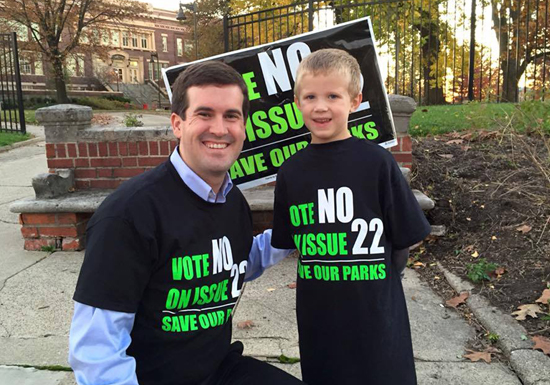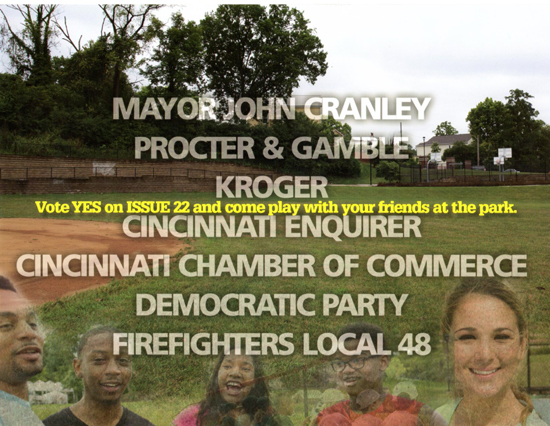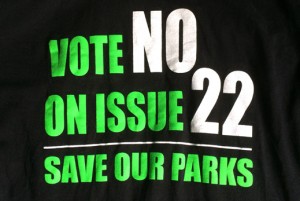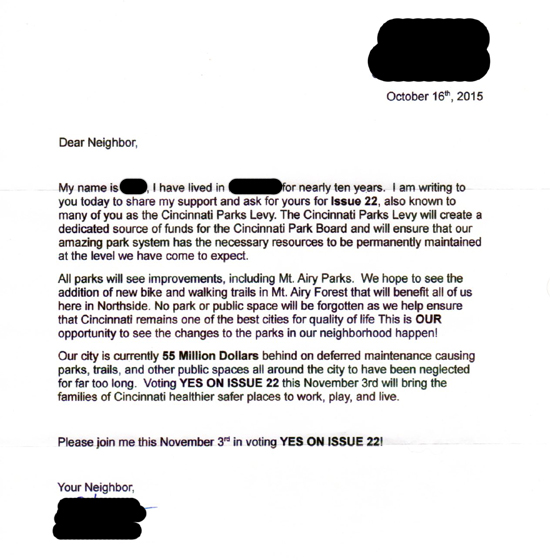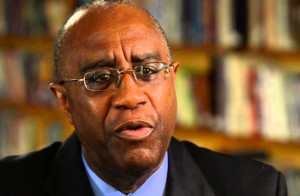How $7,500 defeated a $1 million Cincinnati loophole
I’d like to tell this story for a couple of reasons. One, to talk about what I learned. And two, to encourage people to get involved in politics – a small group of dedicated people can make a difference.
The story is about defeating Issue 22, a proposed charter amendment in Cincinnati that wasn’t what it seemed on the surface.
This past summer information started coming out about a corporate-sponsored attempt to change our city charter.
The first I learned of this was when a prominent civil rights activist, Marian Spencer, wrote a blistering op-ed about Issue 22, a seemingly innocuous levy we were told would support Cincinnati parks.
My first thought was, parks? How could anyone be against a parks levy?
Ms. Spencer came out against the parks levy for these reasons: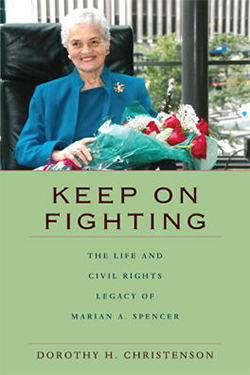
- Voters should have the opportunity to approve or deny any tax levy periodically. It should not be permanently written into the city charter.
- The proposal does not guarantee that parks will be free of charge.
- The parks levy shouldn’t be for capital projects only. What about the maintenance and upkeep of our parks?
Initially, Ms. Spencer had supported the levy.
Part of the back story on this is that our mayor, John Cranley, called Marian after he heard about her decision and “urged” her to change her mind. Reportedly, he told her if she opposed it, her face would be on the front page of the Cincinnati Enquirer as the opposition.
Yeah, that’s right. Our mayor threatened a 95-year old civil rights hero.
After Marian’s op-ed, people started to look at the levy and the reasons behind the levy.
Issue 22 would have created a permanent tax written into our charter that is essentially under the control of one person, the mayor.
Here’s the language from the levy about how 75% of the money is to be spent:
Seventy-five percent of the annual revenue generated by such additional levy shall be used in accordance with a capital program recommended by the Mayor of the City of Cincinnati and approved by the Board of Park Commissioners.
The other 25% goes to the Parks Board for whatever they want short of debt service.
The mayor can create the entire plan, without any input from the community or the Parks Board or anyone else, and then it goes to the Parks Board for approval. The mayor appoints members of the Parks Board. This essentially puts control of most of the money from the tax in the mayor’s hands.
In other words, the parks levy, Issue 22, was really a slush fund for the mayor.
Why do this?
Well, it’s hard to tell.
What it looks like is that the mayor’s office was trying to bypass the normal budgeting process to fund development projects in our city parks.
Our regional chamber of commerce favored this project because they believed it would create economic development.
Many wondered, however, if the large business interests in our city also liked having one person that they could go to in order to bypass citizen review and community involvement.
But aren’t you for parks?
Absolutely.
I want a strong park system and I understand how it’s been underfunded by, ironically enough, the same business community that now wants a property tax levy.
Since 2010, city funding has been cut by more than $25 million a year to pay for income tax cuts for the wealthy at the state level. Income tax cuts supported by the chambers of commerce.
Now these same business interests want the infrastructure, they want the development, they just don’t want to pay for any of it.
I fear this is the future of our country – a continued shifting of costs from the well-off onto everyone else.
We’ve seen this with income tax cuts and payroll tax increases. We’ve seen this with corporate loopholes and lower capitals gains taxes. We’re seeing this with property tax increases, sales tax increases, and increased fee. We see this with so-called “flat tax” proposals.
In Cincinnati, we’re seeing it with a property tax increase to make up for the loss of revenue from tax cuts for the wealthy.
This said, I still probably would have supported the tax for our parks if the community would have been involved. Instead, the levy looked like an end run around democracy. And I agree with Marian Spencer that we shouldn’t be changing our charter this way.
I also had a lot of questions about the levy being used for development purposes only. What we were hearing was that the parks needed money for maintenance. However, the new levy proposal was 75% for development. And this development looked like development by private companies. Beer gardens, parking lots, etc.
Did companies want access to developing park land and want the public to pay for it?
The publicity campaign from the pro-22 side was well funded
The mayor was featured in this video produced by Citizens for Cincinnati Parks.
Citizens for Cincinnati Parks raised nearly a million dollars with funding coming from:
- Duke Energy ($50,000)
- The Cincinnati Regional Business Committee ($50,000)
- Cincinnati Bell ($25,000)
- American Financial ($50,000)
- Western & Southern Life Insurance ($50,000)
- The Kroger Co. ($50,000).
There were 23 donations of $10,000 or more; and they accounted for about 85 percent of the funds raised by the pro-Issue 22 committee.
By October, $250,000 had been spent to put Mayor Cranley’s commercial on the air.
Hmmm … Where are the citizens in Citizens for Cincinnati Parks?
The opposition
Donald Mooney, one of the organizers for Save Our Parks, worked to get the message out in four ways:
- Community council appearances
- Public debates
- Social media
- Yard signs
Save Our Parks raised a total of $7,500 through November. The largest donation was $1,000 from the Audubon Society of Ohio.
I believe the rest of it was raised at a small get together where they asked for donations and t-shirts were sold.
Here’s Derek Bauman, one of the leaders of the opposition, in an interview with local affiliate Fox-19.
Two parks debates were also scheduled and hosted by the Cincinnati Enquirer. At the first debate, it was revealed that the levy effort had received $200,000 from the Park Board itself through a 3rd entity. The 501c4 PAC was helmed by Cranley confidante and former mayor Charlie Luken.
In local political circles, this was what’s known as a bombshell. Though not technically illegal, the campaign later returned the $200,000.
As more and more information came out, the people behind the parks levy looked worse and worse.
As a writer for local blog SoapBox Media wrote:
This sounds like a campaign that was hatched in a shadowy backroom by campaign consultants armed with donor lists and voting tabs from the last mayoral election doling out political favors and strategizing over voting blocs and pet projects.
The tide turns
Cincinnati has a 3rd party called the Charter Party who occasionally runs candidates and is known for their support of the city charter.
The Charter Committee had initially endorsed the levy.
Charter Committee President Colin Groth noted that the change in position was really more of a response to the new information that kept coming out about Issue 22:
As more and information came out about the levy, it was clear the Charter board felt the need to speak out about how this violates the principles of good government espoused by the Charter Party.
Meanwhile, people trying to pass issue 22 were sending out letters from neighbors who had initially endorsed it. The letters looked like they were sent by a media firm, all having similar copy.
These letters were really smart. They made it look like a grassroots effort!
I chipped in by writing an editorial that was my top local post ever and posting it to my friends and local Facebook communities. It was shared nearly 400 times and seen by over 3,000 people.
I also spoke with my neighbor and asked him if he knew his name was being used by the campaign. It came as a bit of surprise to him but he said, “Yes, he’d been asked.” By the time the election rolled around, however, he told me that it wouldn’t bother him if the initiative didn’t pass.
My hope was that the people who read my article would also work to influence their friends.
You could see the tide of public opinion turning. People who had originally been for the levy were increasingly coming out against the issue. The pro-22 side was losing the ground game.
—
A few lessons learned
It is possible to do some very good things when enough people get involved and don’t buy the bullshit.
This is the primary reason why I wanted to share this post. You can make a difference!
It’s just slow and it doesn’t always seem easy. Here’s a few other lessons I took away from the Issue 22 fight:
1. The importance of social media.
One of the ways people found out is through a local political forum. The forum is new and still only has 1,900 or so people. The people in this forum, however, are a who’s who of local politics.
City council watches the forum, the mayor watches the forum, leaders from both the Republican and Democratic parties watch the forum, reporters watch and post in the forum and a number of prominent local activists post and comment here.
I’ve been in the forum for over a year now and have met and made friends with quite a number of people by talking about issues.
I give credit to the moderators and the community of the Cincinnati Politics forum.
2. Good politicians matter.
Several city council members supported the right for community involvement in the process and spoke out publicly against Issue 22.
Yvette Simpson, Wendell Young, Chris Seelbach, and Charlie Winburn all spoke out against the issue.
3. Politics makes strange bedfellows.
I say this partly because Charlie Winburn is now a Republican. He split with the other Republicans on council, however, against a tax that he was against.
The Coalition Opposed to Additional Spending and Taxes (COAST) was also against the levy. I spoke to several libertarians who joined us in this effort along with the Cincinnati Homeless Coalition.
I particularly remember Charlie Winburn speaking at our meeting about how you never know who you’re going to be fighting with. So make sure to still like the people at the end of the day. Regardless of what fight you’re fighting.
I am almost always on the opposite side of issues from Charlie Winburn. But this is good advice.
4. Letters from neighbors is a great idea.
When I saw this, even though it was from the opposition, I couldn’t help but think that I wish we’d of done it.
It’s very savvy because who are you more likely to listen to, a neighbor or some TV commercial?
What this is starting to tell me is that people are tired of being marketed to.
5. Local heroes can make a huge difference.
When Marian Spencer spoke out against the levy, it really opened some eyes. People started asking, why is someone as upstanding as Ms. Spencer speaking out against a parks levy?
The more we questioned, the more we found out she was right. The proposal was really more of a slush fund that the mayor could use to reward political allies.
I also hope to read her new book Keep on Fighting: The Life and Civil Rights Legacy of Marian A. Spencer.
6. Don’t always believe the polls.
During the last week, the Mayor’s team touted a poll saying Issue 22 was going to win: 56 percent to 35 percent.
The final vote?
Issue 22 lost 59 percent to 41 percent. Almost reverse of what the poll suggested.
7. The friends and networks you make are the most important thing you have.
A couple years ago, I hardly knew anyone in the local political scene. I started writing local articles occasionally and speaking a lot about various issues in our forums. Now, more often than not, people will say, “We haven’t met in person, but I know you from online.”
This is the future. As news becomes more and more corporate-owned and focused on marketing, people are looking to the people they know as trusted sources. I’ve become a trusted source because I don’t speak for any interest that is trying to profit off people.
8. You are never not powerful.
Don’t ever forget this.
You’ll hear people say, “It doesn’t matter.” Or try to tell you both sides are the same. Usually they do this because they support the other side.
I never see any businesses taking this advice. They’re in there fighting and lobbying as hard as they can. In this case, they spent almost $1 million.
We defeated Issue 22 for $7,500 and a lot of people power.
Cross posted at Daily Kos.
—
 |
David Akadjian is the author of The Little Book of Revolution: A Distributive Strategy for Democracy. Follow @akadjian |


